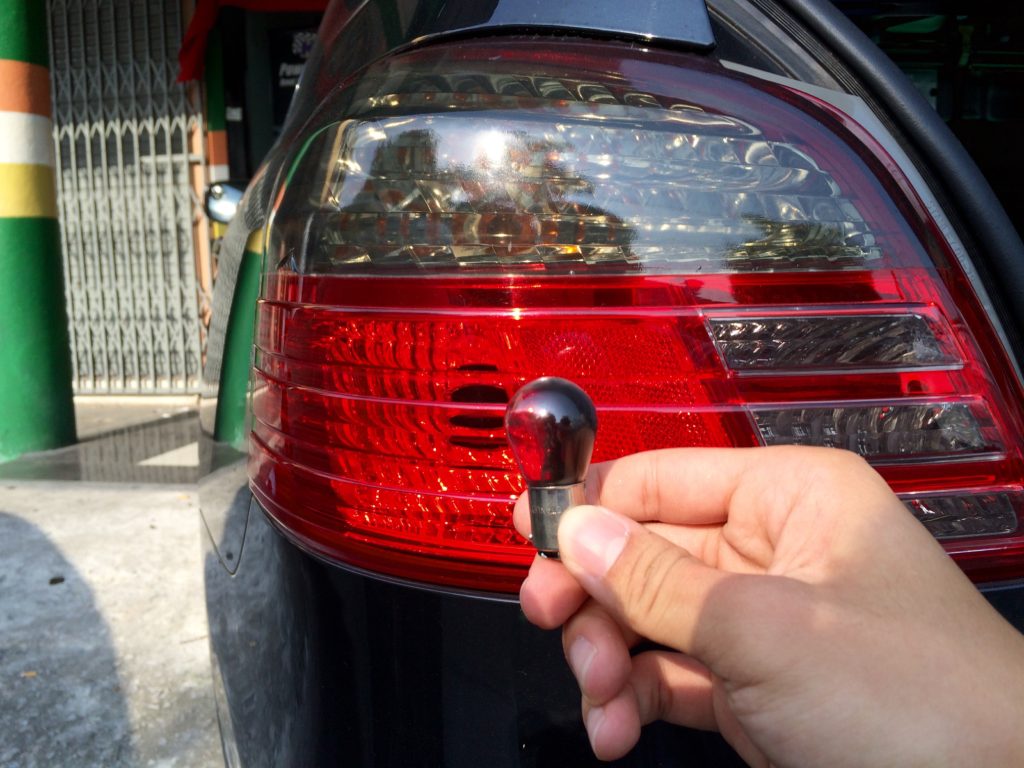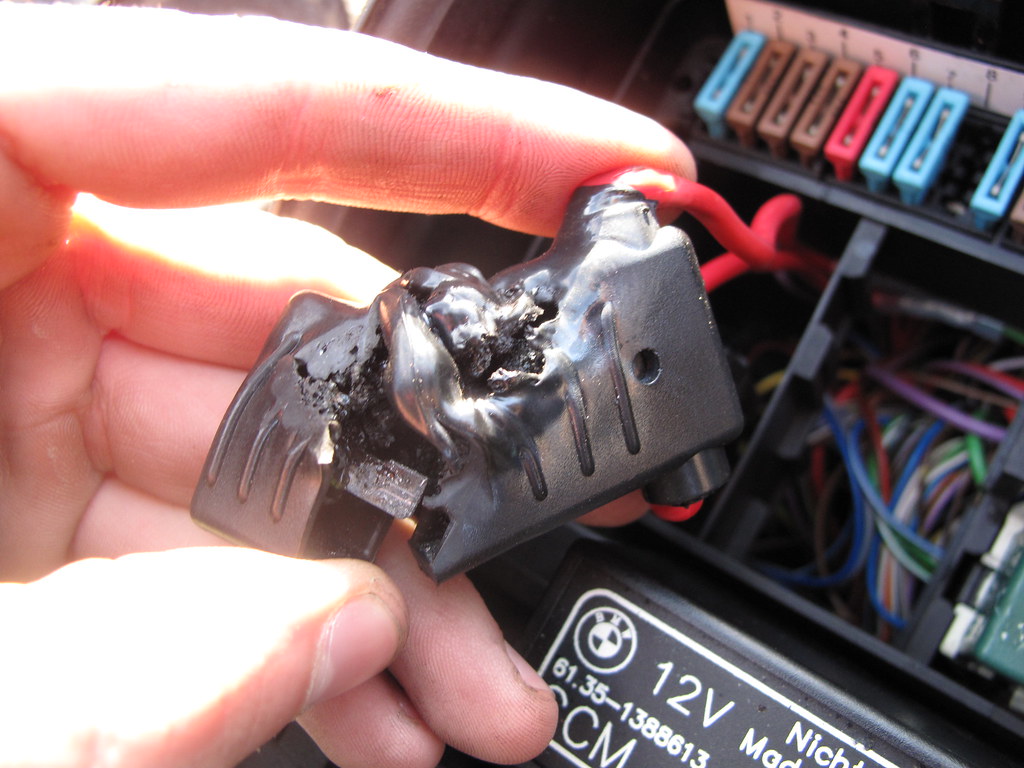Brakes and brake lights are incredibly important, especially when racing. Without functional brake lights, you won’t know the condition of your brakes. Such uncertainty is really concerning.
Therefore, why does my brake light fuse keep blowing?
Your fuse is blowing due to damaged lights, burnt sockets, or melted wires. Each of these issues requires simple inspection and replacement. Furthermore, by reducing the rear load and inspection, your fuses will remain intact.
If you want to quench the curiosity then, read on. We’ve elaborated on the reasons and have provided tips to keep the fuse intact.
So, let’s get ready at the starting line and fix this issue fast!
Reasons for Brake Light Fuse Blowing Repeatedly

There are a few simple reasons why your brake light fuse keeps blowing. They’re mainly due to faulty bulbs, burnt sockets, and melted wires. To understand them better, let’s see them closely-
Reason 1: Damaged Brake Light Bulbs
The first reason is regarding the brake light bulbs themselves. Damage to the light bulbs can create pathways for shot circuits.
So, it’s best if you inspect the brake light bulbs. Pay special attention to the contacts. If you see that the contacts look melted or sooty, that’s the problem.
This can close off the circuit and cause a surge of current when the brakes are in use. No matter how many times you replace the fuse, it will continue to blow.
Solution: Replace the Light Bulbs

The solution to this is straightforward. Simply replace the brake light bulbs. This way your bulbs won’t create a short circuit that’ll blow your fuses out.
Here are our suggested brake light bulbs that you can use. These are quite durable-
First, you need to find and unscrew the casing of the brake lights. Then gently, remove the paneling that stores the lights. After that, identify and unscrew the bulb holder. Lastly, pull out the old bulb and place the new one.
Depending on your preference, bulbs can cost anywhere from $50 to $100. That’s because many cars have LED bulbs which tend to be a little pricey. The installation for those can be bothersome too.
If you think this task is tricky, go to a professional. This way you will get rid of any insecurities and ensure smooth replacement.
Reason 2: Burnt Sockets
While checking the bulbs, if they’re fine, the problem must be elsewhere. This time, pay attention to the bulb sockets.
See if your bulb sockets are burnt. To check this you need to see the socket. Check for melted casings, as well as cracks and chips. Use a short finder tool to see if there are risky short circuits that may cause a current upsurge.
There is a high risk of a short circuit when your sockets are scorched. This will then burn the fuse of the brake light.
Solution: Replace the Sockets
If the sockets have burned out, it’s best to have them replaced. You simply need to remove the old sockets. Then solder the connections of the wires with the new socket.
In case you’re looking for new sockets, here are our recommendations
This is a rather affordable procedure. It can cost anywhere between $5 to $15 and the process is simple too.
Replacing the sockets will also keep your fuses lasting longer. Furthermore, this will reduce the chances of shorting or damaging the electrical circuitry.
Reason 3: Melted Wires

The last probable reason is the internal wiring. Due to heavy loads or overheating, wires in the circuit can melt.
Melted wires can hang loose, which can then lead to short circuits. To see if melted wires are an issue, you need to check them.
For this, you’ll need a multimeter. Run the nodes over the wires with the ohmmeter set to the lowest setting. If there is a short connection, the reading will remain at 0 or at 1.
However, for the best results, you’ll need the best multimeter. If you don’t know which multimeter to get, look at the choices we have for you. All of these will give precise readings each time.
Once you’ve taken a look, let’s see how we can solve the issue with melted wires.
Solution: Remove And Replace Connections
For this, you’ll have to replace the wires. See which wires have melted and cut the damaged portions.
Then, using heat shrink tubing, connect the remaining pieces. This will keep your fuses intact and they won’t blow.
This is a pretty simple task. If you require assistance, do not hesitate to contact a professional.
Tips to Help
There are a few tips that can further help your brake light fuse from not blowing. We have listed them below for you:
- Remove heavy load from rear-end, this will preserve the wires and reduce shorts
- Inspect electrical circuitry every 3 months- regular checks will help you identify problems faster
With the tips covered, now you know how to tackle the issue of the brake light fuse. This brings us almost to the end!
Frequently Asked Questions
Is it acceptable to use a higher-amp fuse in an automobile?
No, it’s not. A higher amp fuse in the car will only increase risks. That’s because a higher amp fuse will need a higher current to blow it. However, a larger current can raise the risk of a car fire. Furthermore, it can damage the inner circuitry as well.
Why does the same fuse keep blowing in my car?
This could be due to damage to the internal motor or power lock solenoid. If they are damaged due to overheating or burns, they’ll draw more power. When this happens, the circuit is put under strain, which might result in the same fuse blowing repeatedly.
Is it possible for a blown fuse to drain a car’s battery?
To prevent current from flowing through the circuit, a fuse blows. As a result, a blown fuse will not deplete the battery. If you still have doubts, get the battery checked for discharge power.
How can I prevent my brake light fuse from blowing in the future?
To prevent future occurrences, ensure proper installation of bulbs, inspect wiring regularly for wear or damage, keep connections clean and corrosion-free, and protect all electrical components from moisture. Address any issues promptly to prevent them from escalating and causing fuse blowouts.
Can water exposure cause the brake light fuse to blow?
Yes, water exposure can corrode wiring and connections, leading to short circuits and fuse blowouts. Ensure that all wiring and connections related to the brake lights are properly insulated and protected from moisture. Seal any openings to prevent water ingress.
Can water exposure cause the brake light fuse to blow?
Yes, water exposure can corrode wiring and connections, leading to short circuits and fuse blowouts. Ensure that all wiring and connections related to the brake lights are properly insulated and protected from moisture. Seal any openings to prevent water ingress.
Can a short circuit in the brake light wiring cause the fuse to blow?
Yes, a short circuit in the brake light wiring can lead to excessive current flow, causing the fuse to blow. Inspect the wiring carefully for exposed or damaged wires. Repairing or replacing the damaged sections can prevent short circuits and fuse blowouts.
Conclusion
In conclusion, addressing a leaking brake bleed valve is crucial for maintaining the integrity of your vehicle’s braking system. By meticulously following the five-step solutions outlined in this guide, which include identifying the leak, tightening the valve, applying thread sealant, considering a replacement, and conducting a thorough test, car owners can effectively resolve the issue. Taking these proactive measures ensures not only optimal brake performance but also enhances overall road safety, underscoring the importance of regular brake system maintenance in every vehicle owner’s responsibility.
That’s all for why does my brake light fuse keep blowing. We’re certain with our tips, you can easily overcome this fuse issue easily.
If indeed our advice was helpful, we’d appreciate it if you reached out to us. For now, we wish you happy racing!
Read also: Why Does My Exhaust Sound Raspy?
- Ford Fusion Hybrid Battery Dead (Things to Understand) - September 17, 2022
- EcoBoost Noise When Accelerating (problems+Solutions) - September 17, 2022
- Ford Fusion Power Seat Problems (Here The Solutions) - September 17, 2022
